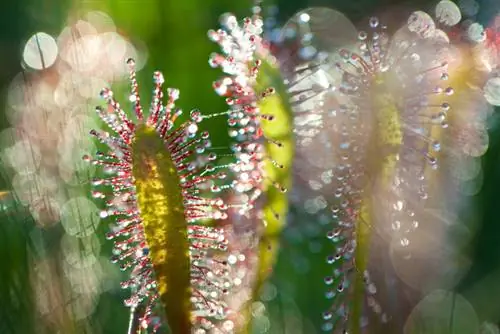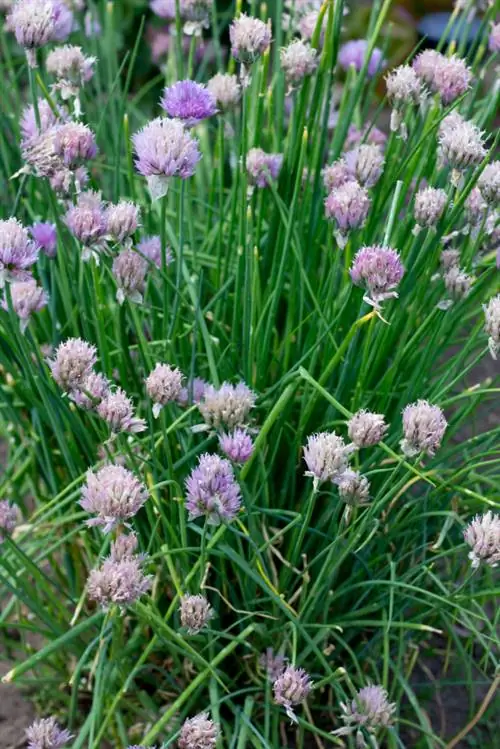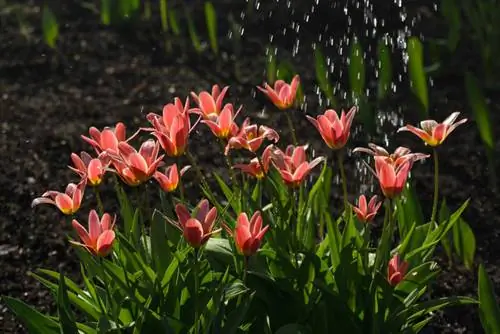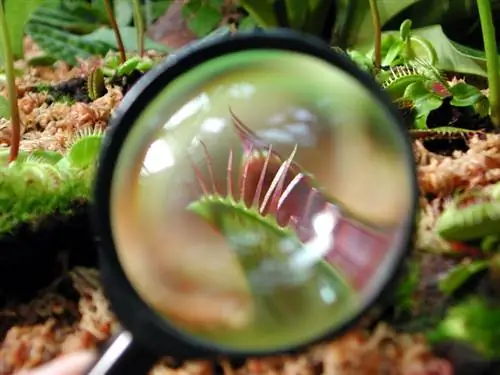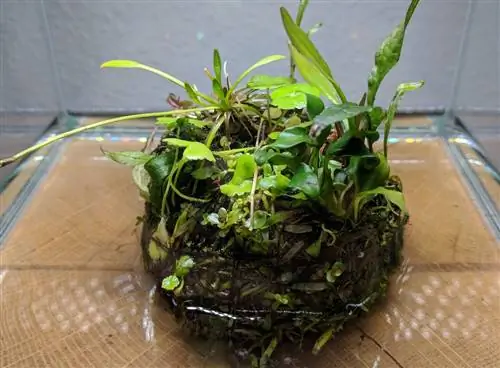- Author admin leonars@hobbygardeners.com.
- Public 2023-12-16 16:46.
- Last modified 2025-01-23 11:20.
Carnivorous plants cannot tolerate lime at all. Tap water generally contains too much lime. You should therefore only use rainwater as water. What else you need to consider when watering carnivores.
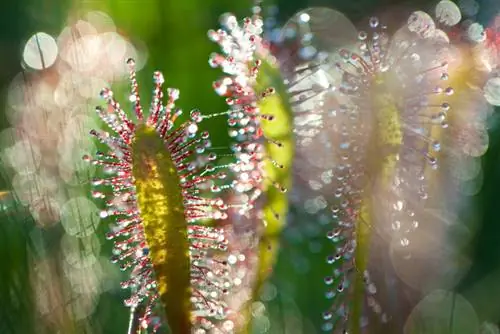
How should you water carnivorous plants?
Carnivorous plants should be watered with lime-free water, such as rainwater. Use the tamping method by placing the pot on a higher saucer and filling it with water. Avoid waterlogging and do not water directly on the plant parts.
Watering carnivorous plants with rainwater
Lime is the death of almost all carnivore species. Watering with rainwater is therefore the best thing you can do for your carnivorous plants. It contains no lime and sufficient minerals for he althy plant development.
If you don't have rainwater on hand, you can use still mineral water as a substitute. If necessary, distilled water will also work.
To remove limescale from tap water, it is not enough to let the water stand or boil it. Therefore, avoid using tap water completely when watering.
Watering carnivores using the damming process
Carnivorous plants must never dry out completely. But they also cannot tolerate waterlogging. That's why it's best to water carnivores using the damming method.
To do this, place the pot on a higher saucer. This is filled with rainwater until the water level is around two centimeters high. If the moisture has been completely absorbed by the substrate, wait two days and then pour rainwater into the saucer again.
Do not water plants directly
Avoid watering the above-ground parts of the plant when watering.
If the humidity in the room is too low, you can increase it slightly by placing bowls of water on the radiator or window sill.
Ventilate regularly to prevent mold from forming due to the high humidity.
Tip
Carnivorous plants thrive best in high humidity. Larger species such as pitcher plants should therefore be sprayed regularly with water. This is not necessary for other varieties.

